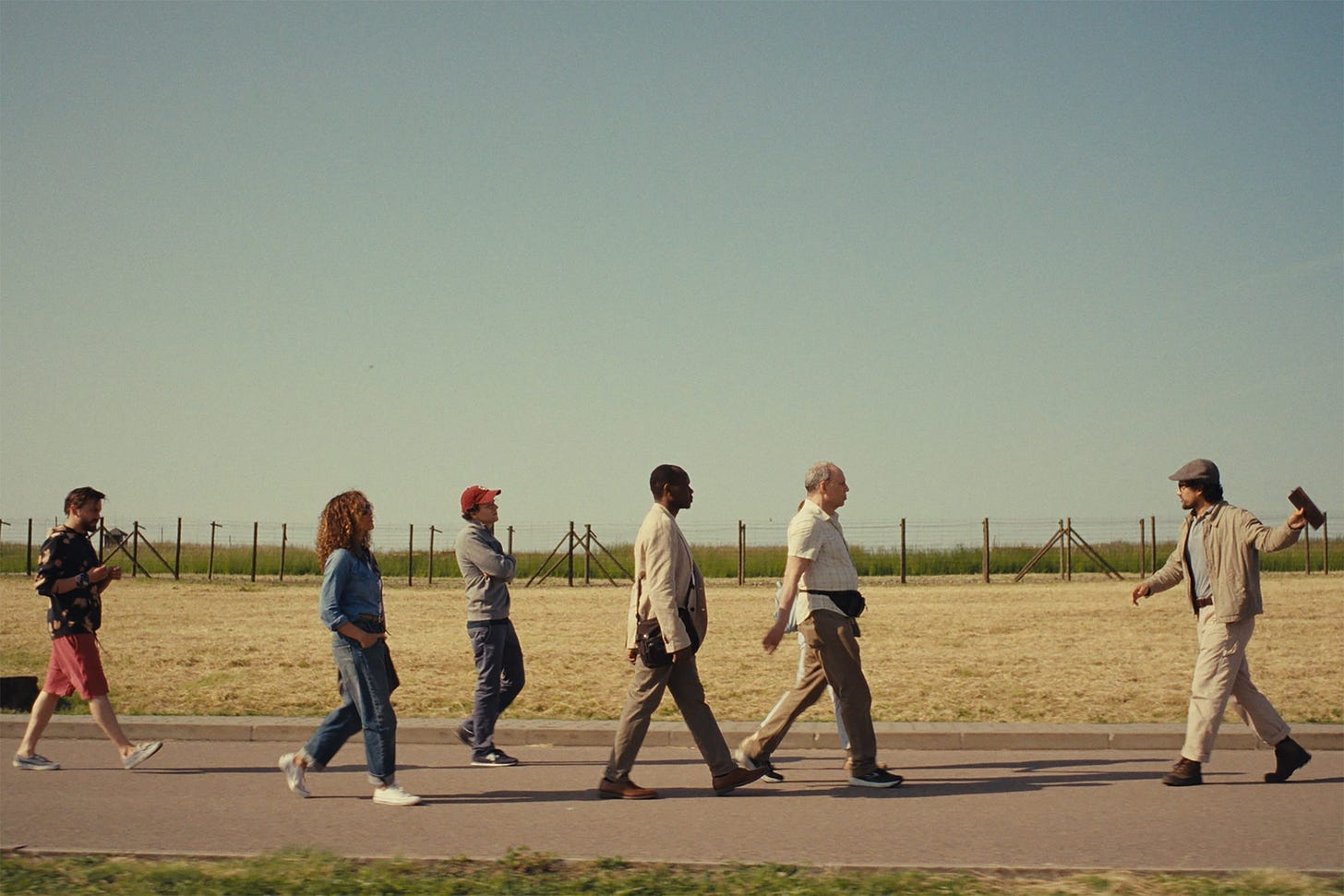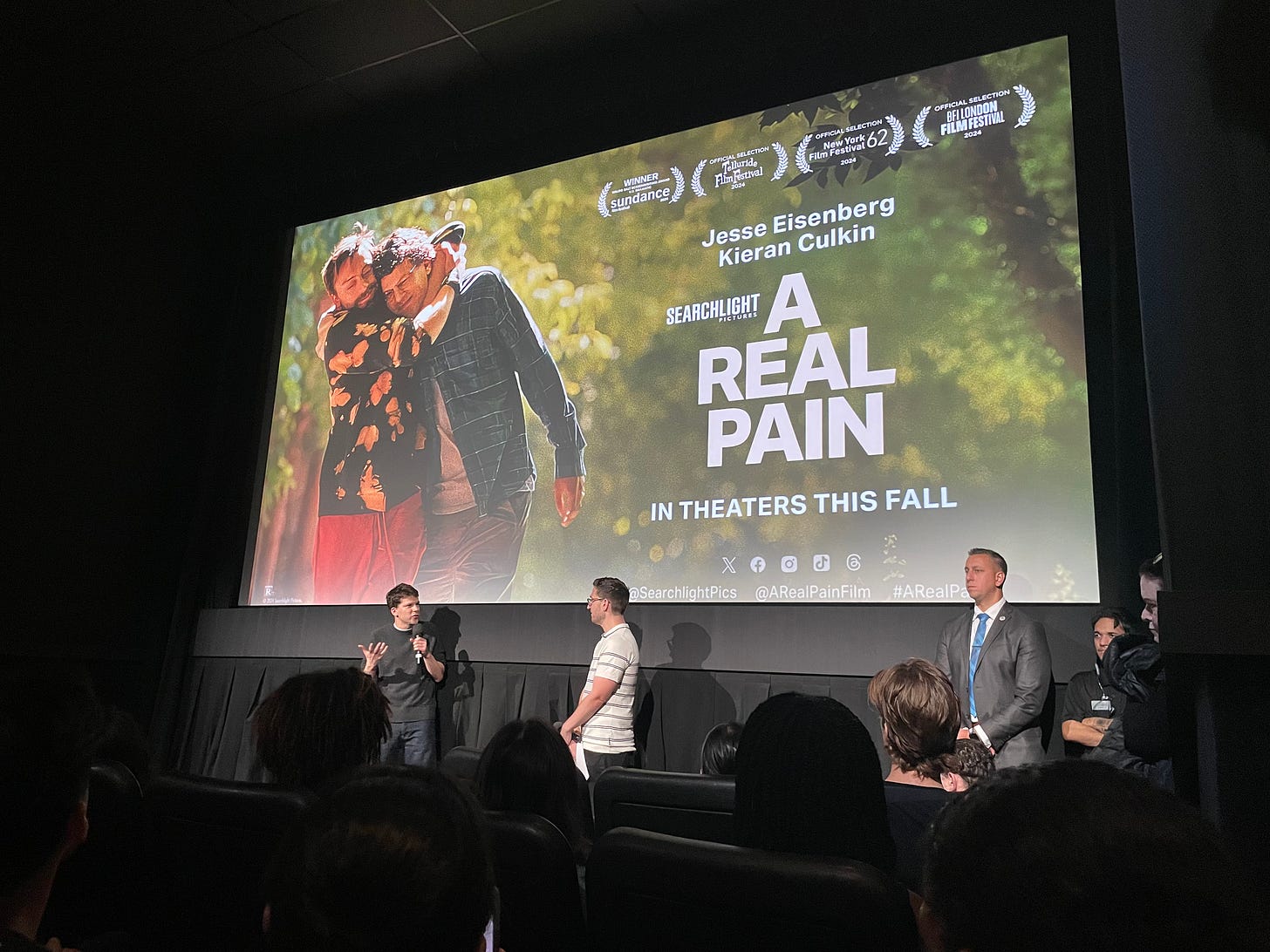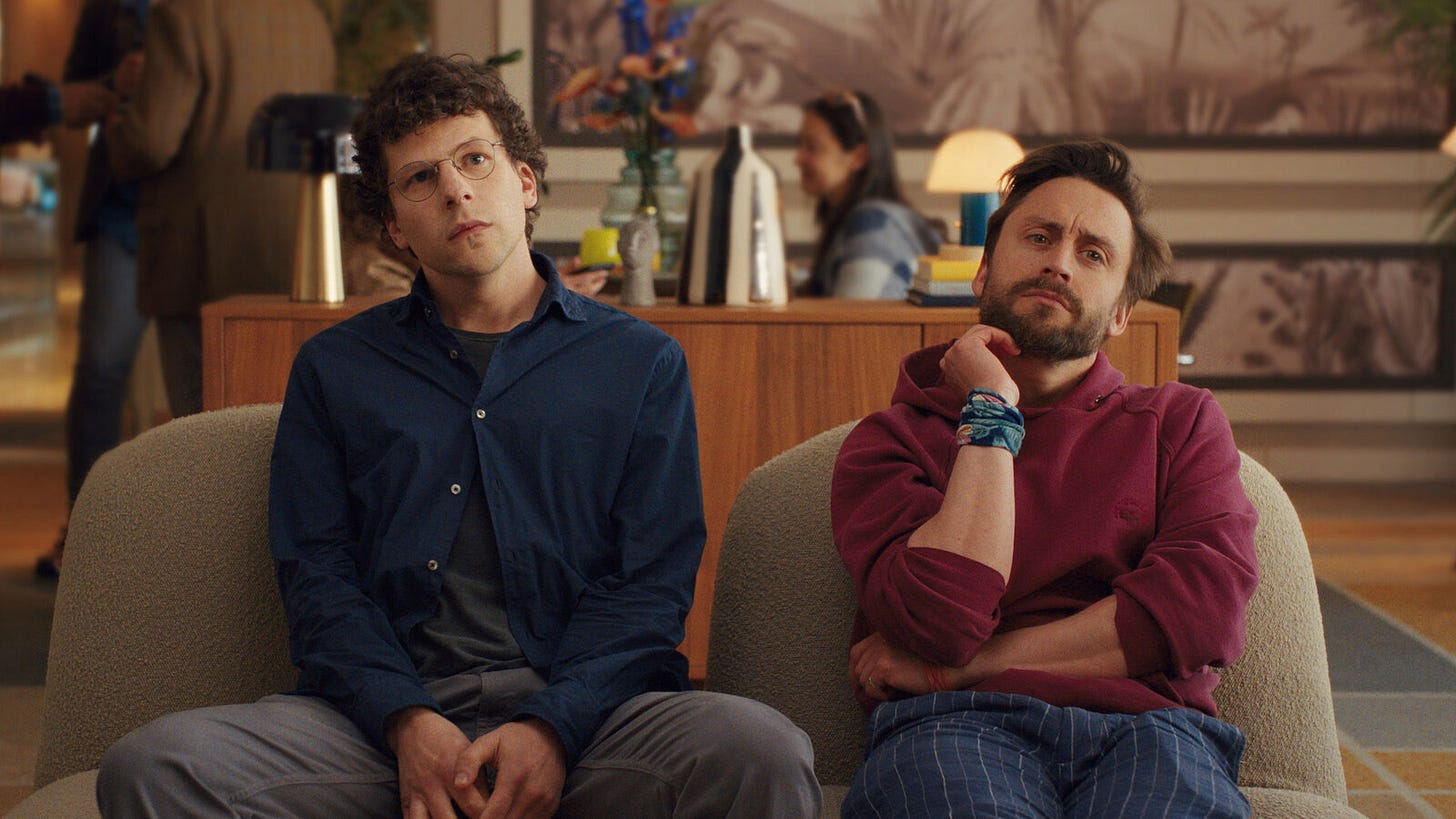It is around that time of the year when you’ll find yourself in the cinema watching a film you weren’t particularly excited about, yet it impresses you nonetheless. In previous years, I’ve stumbled across The Holdovers (2023) or The Banshees of Inisherin (2022), which I’ve claimed as my own and, in a way, have reinstated my love of cinema. A Real Pain is a great example of a simple story of two cousins who clearly lack outward commonality, yet through their trip to Poland; they find warmth over their shared trauma. I was lucky to see this film on premiere night in New York with director/actor Jesse Eisenberg to join us with an in-depth Q&A afterward. I could blame my bias on a great theatrical experience, which may have enhanced my rating, but I could also state that every screening should have an engaged and respectful crowd as a bare minimum. We know that’s rare, and I can say that this film surprised me in many ways that had me laughing and tearing up in moments I wouldn’t have expected.
A Real Pain
Why should anyone care about a story like this? It’s something some may subconsciously ask when they see a film regarding a niche story like this one. Why should we care about the problems of a teenage girl and her family in Lady Bird (2017)? A Real Pain steps us into a trip of two cousins who live completely different lives, one who is contained and calculated (David, Jesse Eisenberg) while the other is the human version of Russian Roulette (Benji, Kieran Culkin). As they fly to Poland to honor their grandmother, their old tensions resurface while on a tour with a small group. The direction of this film tugs at you constantly as comedy is met with sadness until it’s quickly overshadowed by another absurdity. It brought to life the feeling of having someone close to you that you care for, but they are someone you dread bringing around other people. Kieran Culkin is incredible as Benji, and although he seems spontaneous and silly at first, he slowly begins to transform into a ticking time bomb that Jesse Eisenberg’s character needs to defuse. That is until you realize that the time-bomb analogy can be representative of both of them and that bonding that is hard to come by results in a finale that is delicate and sweet.
“Forgive me if I don’t see this magical spark,” says Mark (Daniel Oreske) regarding Benji’s unforgiving behavior at the table. Stylistically, this wasn’t filmed with realism, yet the story itself felt realistic and authentic to someone you know. There is a transformation in our main characters that isn’t unrealistic in what one can achieve in a week, yet still reflective of how impactful a special week with those you love can be. In other words, you can see the delicate change in optimism in our characters that don’t seem to be that we have two completely different characters from beginning to end. I love a moment where Mark, an older character in the group, doesn’t seem to sympathize with Benji’s ‘moments’ that we, as an audience, might find funny. If we were in that tour group, would we be laughing, or would we be annoyed or uncomfortable at such intense outbursts? The tour group is small, but they all polarize in different ways that can show each person’s perspective colliding in moments of unease. It all ties together to make a film that I resonated with more than I expected to based on the delicate moments of growth that we often don’t catch happening in ourselves.
At our show, Jesse Eisenberg talked a lot about the direction he wanted to take, tying together comedy with many obvious dark themes regarding the holocaust, suicide, and other previous traumas. He didn’t want it to be a sob story but rather something that treats trauma with the utmost respect while also poking fun at it, “Similar to my own sense of humor,” as Eisenberg says. I found the humor to be relatable to me as well, but there wasn’t anything completely remarkable too. The simplicity of the film can be seen in the cinematography and delivery of the narrative. For me, this makes it a major reason why I didn’t leave the theatre with my life changed, but that is an unfair bar to judge any movie by. The purpose was to be simple, and I do think it did it well enough for it to be memorable for those who this film was made for.
There may be someone in your life that resembles the unpredictable nature of Benji in this film, which could let you enjoy this film as much as I did. You’ll find that there is the deepest sincerity that leaves you pondering on the niche lives of two young men struggling. There are so many parts of ourselves that we may not give the appreciation that it deserves since we may overlook it. However, these silent traits can be adored, even envied, by others who see it clearly and that’s something sweet to think about. It seems hard to imagine that someone may see us on the street and for them to quietly commpliment us, the way we may to others. I love the idea of beginning to love someone who thinks they themselves are unlovable, and for that warmth to begin to change your own perspective on yourself. Although this film discusses that obvious warmth, what made me enjoy it slightly more, is that not everyone will love you or find that charm in you, but that isn’t meant to bring you down, but rather an idea that pushes you to be more comfortable as yourself.







brilliant words! so cool you got to meet the director!!!